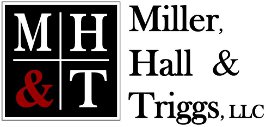By: Joshua D. Herman
The new Workplace Transparency Act imposes significant obligations on Illinois employers beginning January 1, 2020. The Act significantly changes the legal obligations of most employers throughout Illinois, including governments and elected and appointed officials.
The Act was passed to ensure workplaces are free from unlawful discrimination and harassment by, among other things, safeguarding employees’ rights to report wrongdoing and imposing reporting and training obligations on employers.
The Act is not applicable to collective bargaining agreements and contracts that are subject to the Illinois Public Labor Relations Act or the National Labor Relations Act.
Employers Cannot Restrict or Prevent Reporting
The Act limits employer restrictions on employee reporting of allegations of unlawful conduct to federal, state, or local officials. Employers cannot subject employees to unilateral conditions of employment or enter into agreements that prevent the employee from making truthful statements or disclosures about alleged unlawful employer practices.
Settlement and termination agreements may include promises of confidentiality, so long as the employee remains able to make truthful statements or disclosures regarding illegal misconduct.
The employer cannot prohibit or prevent an employee from reporting unlawful or criminal acts by the employer, or cooperating with any investigation or prosecution by a governmental agency.
Employers Must Protect Non-employees
Effective immediately, the Act also requires employers to prohibit and take reasonable measures to prevent the harassment of nonemployees in the workplace. A “nonemployee” means a person who is not otherwise an employee of the employer and is directly performing services for the employer pursuant to a contract with that employer. “Nonemployee” includes contractors and consultants.
The Act Imposes New Reporting Obligations on Employers
Beginning July 1, 2020, and on or before July 1 of each year thereafter, employers must make required disclosures to the Department of Human Rights if they have been subject to an adverse judgment or administrative ruling in which there was a finding of sexual harassment or unlawful discrimination against the employer in the preceding year. If the Department investigates an employer for a charge under the Act, employers must also, upon the Department’s request, make disclosures of settlements for up to the last five years regarding allegations of sexual harassment or unlawful discrimination in the workplace.
Employers are prohibited from disclosing the name of the victim of an act of alleged harassment or unlawful discrimination in any of the disclosures required by the Act.
Employers who fail to make the required disclosures may be subject to civil penalties.
Sexual Harassment Prevention Training
The Act imposes new requirements on employers to provide annual sexual harassment training to employees. The Act requires the Illinois Department of Human Rights to create a model sexual harassment program, but in the meantime, employers should provide training that, at a minimum, includes:
- An explanation of sexual harassment consistent with the Act;
- Examples of conduct that constitutes unlawful sexual harassment;
- A summary of relevant federal and state statutory provisions concerning sexual harassment, including remedies available to victims of sexual harassment; and
- A summary of responsibilities of the employer in the prevention, investigation, and corrective measures of sexual harassment.
After the Department establishes the model training program, employers must use it to supplement any existing program. Failure to follow these training requirements could result in a civil penalty against an employer.
New Civil Penalties
In most cases, the Act provides that employers will be given notice of violations and 30 days to cure them. Employers who fail to cure such violations will be subject to civil penalties. The Act provides that the penalties for failures to report or train will be imposed based on the size of the employer, the good faith efforts made by the employer to comply, and the gravity of the violation. Typically, for employers having fewer than four employees, the penalties shall be $500 for a first offense, $1,000 for a second offense, and $3,000 for a third or subsequent offense. For employers having four or more employees, the penalties will typically be $1,000 for a first offense, $3,000 for a second offense, and $5,000 for a third or subsequent offense.
Employers should immediately review their policies and procedures to ensure that they are in compliance with the new law before it goes into effect on January 1, 2019.

